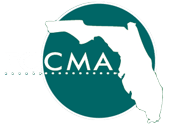I recently met with a local government intern (which school isn’t important, just please know that it isn’t someone seeking a public administration degree) who had several good questions about cities and counties across the U.S. and in Florida. After the first two questions I’d backed up so many times to explain what I had assumed the student knew – never assume! – that I hesitated to move forward. This student was very involved in campus political activities and stressed a strong understanding of leadership. The student couldn’t, however, tell me the difference between a city, county, school district or any district for that matter – and the student believed the State made all local decisions via the Legislature. (“Well, I know there are mayors and stuff, but everything they do is like, ratified by the State, right?”) This is a native Floridian born after 1990 and educated in public schools. Two hours later, as we parted, I wanted to cry. Whether he ever comes back to talk some more I don’t know, but I did try.
Earlier last month I’d spent three hours with 7th graders at a local middle school helping the civics teacher with the ‘local’ portion of the required civics curriculum. He’d emailed me some questions about townships from his textbook (yes, a non-Florida textbook) and I’d written back a lengthy set of answers to try and set the Florida perspective. His students were engaging, enthusiastic and connected with service delivery from their city and county better than many adults do at city and county commission meetings. They got it. The light bulbs went off over each head, in each class, and it clicked. The instructor asked for my notes, which I gladly gave, because as he said, “this part just doesn’t get covered, you know. We all learn the federal part and I feel pretty good about the state part, but the local part is just so tricky.” I’ve offered to come back every year – and I stressed again to him that he tell his social studies supervisor to work with the statewide associations who want to work with them on the civics curriculum in Florida – but from whom we’ve never heard (after nearly 20 years of asking).
Why am I back on this soapbox? The FCCMA is part of the Florida Local Government Coalition, and civics education and civic engagement are one of its goals. We have 20-plus associations that have embraced the need and are now working on how best to do this – and I know I can count on FCCMA to be part of the work plan. FCCMA committees, over the years, have contributed case studies, budget models, public meeting scenarios and other teaching tools to the Florida League of Cities’ local government curriculum, and many of you also voluntarily spend time in classrooms, on field trips and at city facility tours helping the public (of any age) engage. We have to find a way to harness what we’re doing individually into the collective sense – and then get the teachers and supervisors to also engage.
I’ve found my best practice in this, by the way: the reason the students and the intern did connect is the actual service delivery – when you explain what happens when you flush a toilet, put out the trash, have to buy a dog license, dig down below the sidewalk to the pipes or put the traffic light up at an intersection the ‘local government stuff’ becomes personal. Relatable. Real. I consider these to be fundamental to citizenship and to Florida’s future – so I look forward to working with you on putting the ‘fun’ into that core principle.







